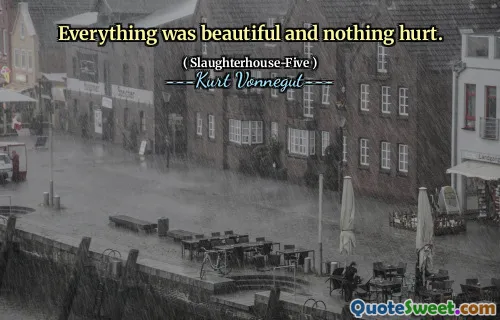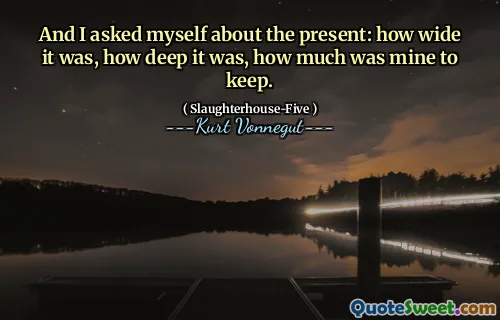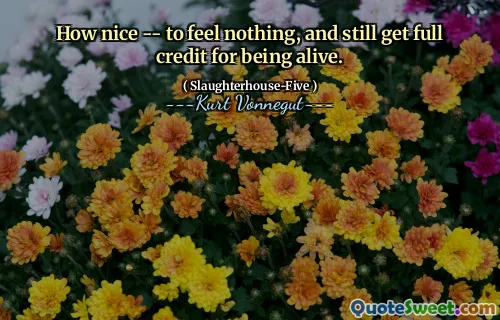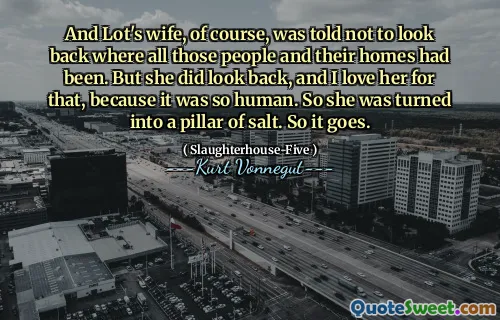
He has seen his birth and death many times, he says, and pays random visits to all the events in between.He says.Billy is spastic in time, has no control over where he is going next, and the trips aren't necessarily fun. He is in a constant state of stage fright, he says, because he never knows what part of his life he is going to act in next.
In Kurt Vonnegut Jr.'s "Slaughterhouse-Five," the protagonist Billy Pilgrim experiences time in a non-linear fashion. He describes his unique perception of existence, where he can see his past and future repeatedly, viewing pivotal moments of his life without control or predictability. This experience creates a sense of disorientation for Billy, as he is unable to choose his next moment, leading to an unpredictable journey through time.
The inability to control his temporal experiences makes Billy feel perpetually anxious, akin to stage fright. He is unsettled by the random nature of his travels through various stages of life, which are often not enjoyable. This reflects a deeper commentary on the nature of life and trauma, particularly in the context of war, as Billy navigates through the chaos of his experiences, revealing the challenges of facing one's existence without a clear path forward.











